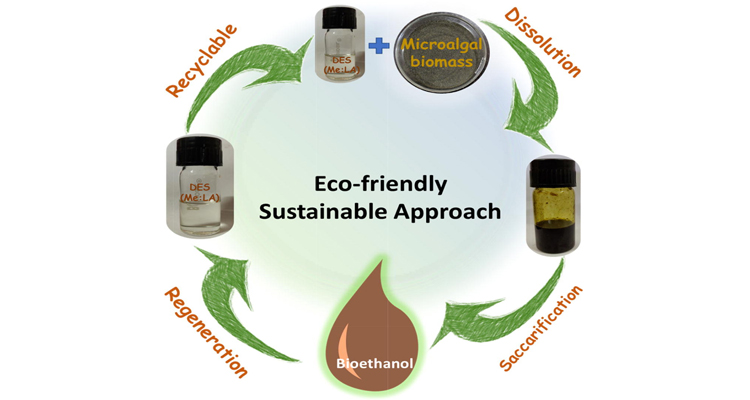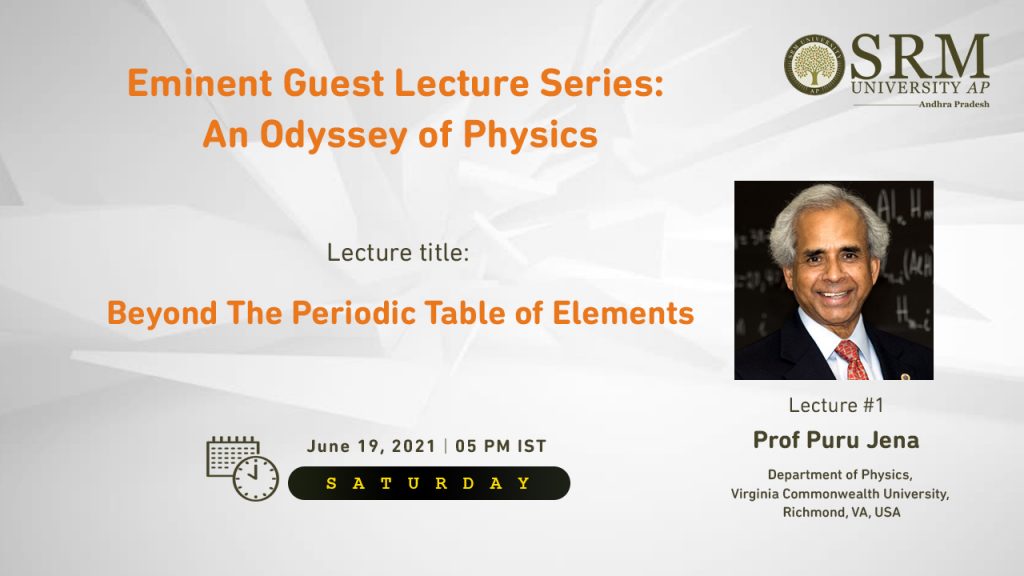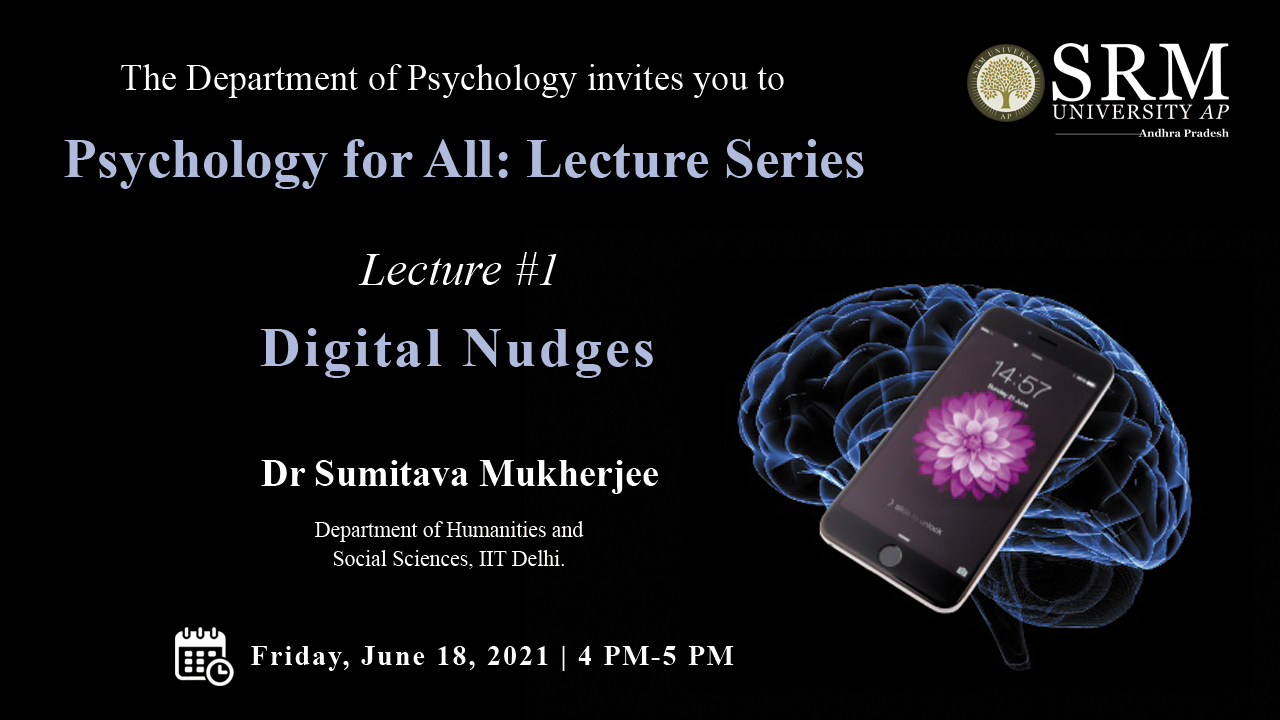- WHY SHOULD YOU CHOOSE ECE OVER CSE? June 15, 2021
Why should you choose the ECE department?
To play an important role in the futuristic technologies both in Indian and global markets, for example, 6G, Glasses free 3D-TV, Autonomous driving, Industry 4.0, Augmented/Virtual Reality and Artificial Intelligence etc.
How is ECE better than other engineering branches?
Name any top inventions you are aware. Be it Mobile phone, Computer, Satellite, Internet, 5G/6G, IoT, AR/VR, Holograms, Machine Learning, AI, smart homes/cities, together with some of the recent necessities like CT scan, Oximeter, infrared thermometers are all the products of ECE.
How is the ECE syllabus unique at SRM University AP?
The syllabus helps students to be industry ready at the time of their graduation by incorporating design thinking curriculum along with advanced courses such as AI-ML, IoT, Embedded systems, Advanced VLSI, Signal processing, Communication systems, and Networking which are the current needs of the industry.
What do I learn in ECE?
You will learn, understand, and build a variety of things that you see/use every day: right from a small switch which just turns ON and OFF the electricity to a mobile phone and a supercomputer which is a backbone of today’s digitised world.
What are the differences and similarities between CSE and ECE?
To begin with, we offer the same syllabus for the 1st year for both CSE and ECE. Later, while CSE focuses to train you towards only programming languages, ECE offers a step-ahead opportunity to get you hands-on both the Software & the Hardware.
How tough is the ECE syllabus in comparison with other branches?
ECE department syllabus adapt to the changes in the technologies faster than any other branches thus it might look difficult in few people’s perception, but it is not.
I may be interested in higher studies; how adaptable does the ECE syllabus have?
ECE is the only branch which gels better with other engineering departments. For instance, you can easily opt for Mechatronics (Robotics & Structural health monitoring), EEE (Renewable Energy & Smart grids), Civil (smart cities, dams, buildings) and Nanotech (Nanobots, carbon nanotubes) to name a few. This is possible by opting for some minor degree in these disciplines.
Okay, are ECE subjects hard to study?
Absolutely NOT and let us BREAK this myth by joining the following webinar where you’ll be introduced to the syllabus of ECE and additional benefits that you will get by joining ECE department at SRM AP.
Continue reading → - Dr Vimal Babu June 14, 2021
- Psychology for all: Lecture series June 14, 2021
Understanding digital nudges can help you become a better decision-maker!
The Department of Psychology, SRM University – AP, organizes a Psychology for All: Lecture Series to introduce us to the nuances of human psychology. The first of this online lecture series will be hosted on the theme Digital Nudges, on June 18, 2021, at 4.00 pm. Cognitive Scientist and Decision Researcher, Dr Sumitava Mukherjee, from the Department of Humanities and Social Sciences, IIT Delhi, will be the guest speaker of the lecture.
Digital technologies are being largely used in our private and professional lives and we are forced to make decisions based on the choices available on our screens. Digital nudging is defined as the use of user-interface design elements to guide people’s behaviour in digital choice environments. Dr Mukherjee studies cognition with a major focus on human judgment and decision making. His current work focuses on how humans perceive, judge, and decide within the realms of interactions with digital technology and algorithms. He also attends to consulting and collaborative queries related to consumer research on (digital) technology interactions, usage and adoption.
All are invited to this awareness-building lecture that would help in making informed and rational decisions in digital choice environments.
Register here: https://srmap.zoom.us/webinar/register/WN_TBH6CEAsScas-bUWw9UeGw
Continue reading → - Microalgal biomass heralds sustainable biofuel production June 14, 2021
 Dr Imran Pancha, Assistant Professor in the Department of Biological Sciences, has recently published a paper titled “Deep eutectic solvents and Ionic liquid assisted hydrolysis of microalgal biomass: A promising approach towards sustainable biofuel production” in the celebrated Journal of Molecular Liquids (2021): 116264 (Impact Factor-5.065). The study was conducted in association with Akshay Kulshrestha, Sandhya Mishra, and Arvind Kumar from CSIR-CSMCRI
Dr Imran Pancha, Assistant Professor in the Department of Biological Sciences, has recently published a paper titled “Deep eutectic solvents and Ionic liquid assisted hydrolysis of microalgal biomass: A promising approach towards sustainable biofuel production” in the celebrated Journal of Molecular Liquids (2021): 116264 (Impact Factor-5.065). The study was conducted in association with Akshay Kulshrestha, Sandhya Mishra, and Arvind Kumar from CSIR-CSMCRIMicroalgae is recently considered one of the promising biomasses for the production of renewable energy such as biodiesel and bioethanol. Microalgae are tiny photosynthetic organisms that utilise atmospheric CO2, water and sunlight to produce carbohydrates and lipids, which can be converted into renewable fuels. Compared to higher plants, microalgae is a good platform for bioethanol production as they do not contain any lignin in their cell composition, which makes pre-treatment for biomass hydrolysis easy. In the present study, Dr Pancha and his team explored the use of green solvents ionic liquids (ILs) and deep eutectic solvents (DESs) for microalgal hydrolysis. They observed that among the eight tested ionic liquids, ethyl ammonium nitrate (EAN) resulted in the highest saccharification yield of 95.5%. Whereas, among hydrophobic deep eutectic solvents, menthol: lactic acid (Me: LA) exhibited the highest saccharification yield of 85.7% and also did not require any additional high temperature or other pre-treatments for biomass hydrolysis, indicating as the potential solvent system for microalgal biomass hydrolysis. Overall, the present study results indicated that the identified IL and DES could be used as a green and sustainable alternative for the pre-treatment of microalgal biomass for bioethanol production.
Due to limited fossil fuel reserve as well as environmental issues like high greenhouse gas emission and other environmental problems, finding green and sustainable energy resource is of prime importance for today’s world. To solve this problem, microalgae are among the best resources for producing renewable resources due to it’s high growth rate and photosynthetic ability. Microalgae also have the ability to obtain nutrients from various wastewater, so they also do not require fresh water for cultivation. However, commercial-scale production of microalgae-based biofuels faces various problems such as cultivation cost, downstream processing for biofuel production etc. In this regard, in the present work, Dr Pancha demonstrated the use of ILs and DESs for pre-treatment of microalgal biomass for reducing sugar production, which can be further utilised to produce bioethanol.
Dr Pancha and his research group are further devoted to understanding the molecular mechanism behind the accumulation of energy reserved compounds in the microalgae and developing a sustainable biorefinery process to extract biofuels and other industrially relevant compounds from single microalgal biomass.
Read the full paper: https://doi.org/10.1016/j.molliq.2021.116264
Continue reading → - An invited lecture on technologies for connected vehicles June 14, 2021
 An invited lecture, “Technologies for Connected Vehicles”, will be organized by the Department of Electrical and Electronics Engineering (EEE), SRM University-AP, Andhra Pradesh, on June 19, 2021, at 11.00 am. In this online session, Dr Ramani Kalpathi, guest faculty at BITS Pilani, will give an introduction to intravehicle networks with a focus on CAN, LIN, Flexray, MOST, Ethernet, and Bluetooth networks introducing the frame formats, sample hardware implementation, and SAE formats.
An invited lecture, “Technologies for Connected Vehicles”, will be organized by the Department of Electrical and Electronics Engineering (EEE), SRM University-AP, Andhra Pradesh, on June 19, 2021, at 11.00 am. In this online session, Dr Ramani Kalpathi, guest faculty at BITS Pilani, will give an introduction to intravehicle networks with a focus on CAN, LIN, Flexray, MOST, Ethernet, and Bluetooth networks introducing the frame formats, sample hardware implementation, and SAE formats.Dr Ramani Kalpathi is the founder of Powersoft Systems and The ARM Academy. He earned his PhD in Electrical Engineering from Texas A&M University, USA, and M.S in Electrical Engineering from IIT Madras. The use of Wifi and IoT technologies and their presence for ubiquitous networks with typical samples of synchronous messages will be presented for connected technologies during the lecture. Implementation of Electic vehicles and the need for continuous data monitoring for autonomous vehicles may also be discussed for the purpose of diagnostics and reliability.
All interested B.Tech, M.Tech, and PhD students from any university are welcome to join the lecture upon registration.
Registration Link: https://srmap.zoom.us/webinar/register/WN_bbU84N2NT7mVx7qRK0DbFw
Know more about Prof Jena: https://physics.vcu.edu/jenasgroup/
Continue reading →


